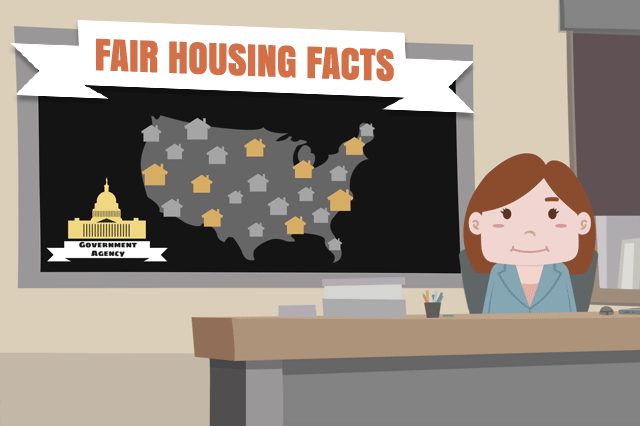The FHA Commitment to Fair Housing
February 11, 2025
This insurance reduces the risk associated with lending to borrowers who may otherwise be considered higher risk, encouraging lenders to offer more favorable terms, such as lower down payments and more flexible credit requirements.
A key element of the FHA program is its commitment to fair housing, deeply rooted in the Fair Housing Act.
The act, passed into law in 1968, prohibits housing discrimination based on race, color, religion, national origin, sex, familial status, and disability.
As a government agency, the FHA must uphold and enforce the Fair Housing Act in all its programs and operations.
The FHA's role in promoting fair housing is more than helping consumers avoid discriminatory practices. The FHA's mission includes removing barriers to housing opportunity and creating inclusive communities.
This involves educating lenders, real estate professionals, and consumers about their rights and responsibilities under the Fair Housing Act. The FHA also provides resources and support to individuals who believe they have experienced housing discrimination.
The Fair Housing Act and its Impact on FHA Lending
The Fair Housing Act is the cornerstone of fair housing law in the United States. It prohibits discrimination in selling, renting, or financing housing based on protected characteristics. The FHA plays a vital role in enforcing the Fair Housing Act and ensuring everyone has equal housing opportunities.
The following are the protected characteristics under the Fair Housing Act:
- Race: This includes discrimination based on ancestry or ethnic characteristics associated with a particular race.
- Color: This refers to discrimination based on a person's skin color.
- Religion: This protects individuals from discrimination based on their religious beliefs or practices.
- National Origin: This prohibits discrimination based on a person's birthplace, ancestry, or cultural background.
- Sex: This includes discrimination based on gender, sexual orientation, and gender identity.
- Familial Status: This protects families with children under 18 from discrimination. It also includes pregnant women and individuals seeking custody of a child.
- Disability: This prohibits discrimination against individuals with physical or mental disabilities and requires housing providers to make reasonable accommodations for them.
Lenders cannot refuse to make a loan, offer different loan terms, or deny housing opportunities based on a borrower's race, color, religion, national origin, sex, familial status, or disability. KNOW YOUR RIGHTS.

FHA Loan Articles
June 27, 2023The FHA loan process is straightforward and has been successfully navigated by millions of homeowners. If you're considering an FHA loan to finance your home purchase, it pays to be prepared. To avoid mistakes before you start your loan application, homebuyers should keep these tips in mind.
June 20, 2023Can an FHA loan be approved if there are late or missed payments on the credit report? Navigating through financial challenges, such as escalating costs of living and employment uncertainties, can indeed make it difficult to maintain a perfect financial record.
June 15, 2023When you buy a home with an FHA mortgage, cash for closing costs and your down payment is required. It would be easy to assume you simply give the lender cash in the specified amount and that’s the end of the story.
May 20, 2023Did you know there is an FHA loan option that lets you build a house from the ground up? You can use this mortgage to build on land you own or on land you buy as part of the loan. But you will want to address some issues comparing construction loan options.
May 3, 2023Sometimes when buying a home there may be a question of surplus or excess land. You likely won’t face this issue when buying a condo unit, but for other types of purchases, this may be an important factor in the appraisal process.







